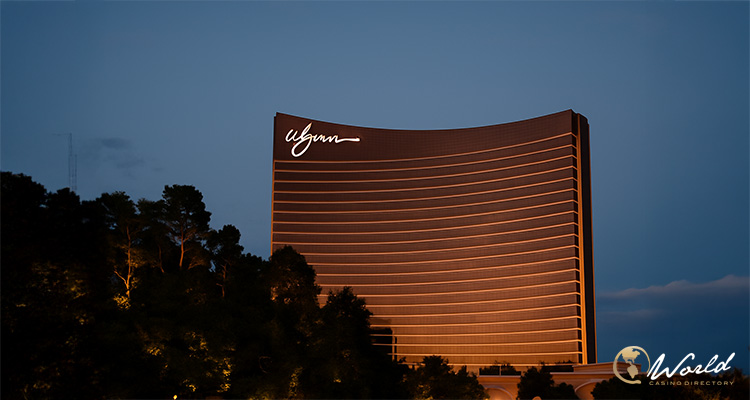Wynn Resorts Ltd. has been hit with a $5.5 million fine by the Nevada Gaming Commission (NGC) for its involvement in a scheme that leveraged unlicensed money transmitting businesses to attract high-stakes international gamblers. The commission’s 4-1 vote in favor of the fine was announced in a news release (pdf) and it follows a series of hearings that have exposed deep concerns about anti-money laundering (AML) compliance across major Las Vegas Strip casinos.
This marks the third substantial fine imposed by the state’s gaming regulator in recent months, underscoring mounting frustration over persistent noncompliance in the casino industry. MGM Resorts International and Resorts World Las Vegas were fined $8.5 million and $10.5 million, respectively, earlier this year.
Allegations of Unlicensed Fund Transfers Spark Scrutiny
At the core of the allegations is Wynn’s relationship with unauthorized money transmitters who helped facilitate large financial transfers for international gamblers, bypassing traditional regulatory channels. Prosecutors and regulators detailed how these independent agents used shell companies, overseas accounts, and third-party intermediaries to covertly send funds into Wynn-controlled accounts in California before being moved to gaming cages in Las Vegas.
The federal investigation revealed that no fewer than 200 transfers were made, amounting to $17.7 million and involving at least 50 patrons. These illicit transactions were linked to Juan Carlos Palermo, an Argentinian national who operated an unregistered money transmitting business and served as a high-roller agent for Wynn. Over a nine-year period, Palermo’s network moved funds across at least 15 countries, including Hong Kong and the UAE, while evading legal reporting requirements.
Despite being blacklisted in 2015, Palermo continued operating through other banking channels until 2021. Wynn’s attorneys argued that these activities were visible under its existing AML program, although critics, including Commissioner Rosa Solis-Rainey, strongly disagreed. She opposed the settlement, labeling the fine as disproportionately small given the scale of the misconduct.
Fallout and Internal Response
In response to the violations, Wynn acknowledged fault and emphasized that the misconduct involved former employees who no longer have ties to the company. “The improper actions that are the subject of the settlement… were undertaken by individuals with whom we severed ties years ago,” the company said, according to Las Vegas Review-Journal. Wynn emphasized its ongoing commitment to regulatory compliance and described its efforts to reinforce a “best-in-class” culture of integrity.
Still, regulators expressed skepticism. Commissioner George Markantonis described the scandal as “a body blow” not only to Wynn’s reputation but also to the integrity of Nevada’s gaming industry. “It’s also a body blow for us,” he said during the hearing. “What are we going to do about it?”
The company, which previously paid a $130.1 million forfeiture in a federal non-prosecution agreement related to the same conduct, must now maintain rigorous internal controls. This includes a commitment to keeping AML training materials current, regularly auditing its compliance efforts, and staffing its compliance team appropriately. Reports on the effectiveness of these reforms will be due to state regulators within two years.
The Broader Crackdown and What Lies Ahead
Wynn’s settlement is the latest chapter in an ongoing crackdown on Strip casinos suspected of enabling unlawful gambling-related activity. Unlike the MGM and Resorts World cases, which centered more directly on money laundering and links to illegal sports betting operations, the Wynn case revolved around violations of federal laws governing unlicensed money transmitters.
Notably, Wynn was not accused of laundering money but rather of failing to prevent financial practices that had serious AML implications. Wynn attorneys emphasized that the violations stemmed from outdated practices and have since been addressed through a broad overhaul of leadership and internal protocols. CEO Craig Billings and several other current executives were not in their roles during the period under investigation.
The company also restructured its compliance oversight by forming an independent committee comprising legal experts and outside board members. Wynn’s stipulation agreement with regulators detailed how several employees who either participated in or ignored the misconduct were terminated following internal reviews.
Even as this case concludes, the NGC’s work is far from over. Investigations into illegal activities at other properties are ongoing, including unresolved disciplinary action against individuals connected to Resorts World Las Vegas. One such case involves Nicole Bowyer, a former independent agent and spouse of a known illegal bookmaker, whose punishment is still under deliberation.
The Commission, having faced criticism for perceived leniency in previous cases, appears to be recalibrating its approach. As gaming regulators ramp up enforcement, Wynn’s multimillion-dollar penalty could serve as both a warning and a turning point for how compliance violations are handled in Nevada’s lucrative casino industry.


